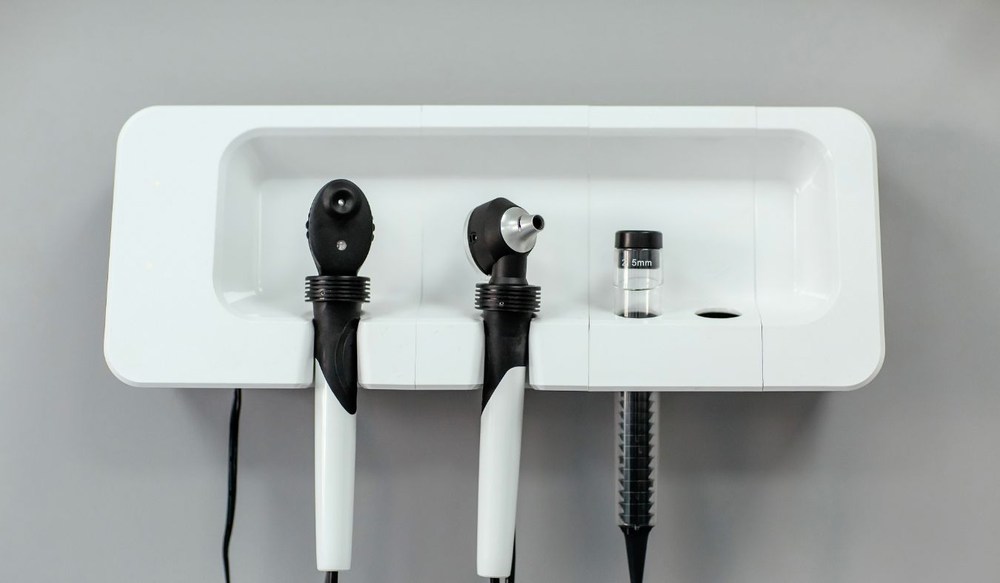The Role of Hearing Tests in Preventative Health Care
Most people schedule regular checkups for their teeth, eyes and overall

By: admin | December 23, 2024
Your medications help keep you healthy, but some can affect your hearing – a fact that many people don’t know about. While taking prescribed medications is important, understanding their potential effects on your hearing lets you make informed decisions with your healthcare team.
Just like checking for drug interactions or common side effects, being aware of how medications might impact your hearing helps you stay proactive about your health. We want you to feel confident discussing any hearing changes with both your doctor and audiologist, especially when starting new medications. Keeping track of your hearing health while managing other medical conditions ensures you’re taking care of your overall wellbeing.
In simple terms, ototoxicity is about the harmful effects that certain medications can have on your hearing. While these medicines are useful for managing specific health conditions, they can sometimes damage the inner ear or nerves responsible for hearing and balance. This harm may result in temporary or permanent hearing loss, ringing in the ears or balance problems.
Only a small group of drugs fall into this ototoxic category, and they’re typically used for serious health issues like cancer, heart disease or severe infections. Your audiologist is an essential resource when it comes to understanding ototoxicity and its potential impact on your hearing health. They can offer valuable advice about which medications pose a risk and how you can best protect your hearing while undergoing necessary treatment.
Ototoxic medications can affect your hearing health in a variety of ways. These drugs, while often necessary for treating serious health conditions, can cause changes to your auditory system that may lead to hearing loss. This happens when the medication damages the delicate structures within your inner ear responsible for processing sound.
These effects can range from mild to severe and may be temporary or permanent. For some, ototoxic medications may cause a slight decrease in hearing sensitivity that disappears once the medication is stopped. For others, these drugs might result in more significant and lasting hearing loss.
In addition to potential hearing loss, ototoxic medications can also contribute to tinnitus – a ringing or buzzing noise in the ears – and problems with balance. This is because the inner ear is not only responsible for hearing but also plays a critical role in maintaining balance.
It’s important to note that these side effects don’t occur with all ototoxic medications or affect every individual who takes them. The impact of these drugs on your hearing health depends on several factors including dosage, duration of use and individual susceptibility.
If you’re prescribed an ototoxic medication, it doesn’t mean you should avoid taking it. These drugs are often vital for managing serious health conditions. However, being aware of their potential effects allows you to monitor any changes in your hearing closely and consult with your audiologist if concerns arise.
Ototoxicity refers to ear damage caused by certain medications or chemicals, which can affect hearing and balance. This happens when substances interfere with the delicate cells in the inner ear, particularly the cochlea and vestibular system. These cells are crucial for detecting sound and maintaining equilibrium, but they are also sensitive and unable to regenerate once damaged. Common culprits include some antibiotics, chemotherapy agents and diuretics, making it vital for individuals taking these medications to monitor their auditory health closely.
The science of ototoxicity lies in how these substances interact with cellular structures. Many ototoxic drugs generate oxidative stress, producing free radicals that harm the hair cells within the cochlea and vestibular system. This damage disrupts the transmission of sound signals to the brain or affects balance functions. Researchers are working to understand the specific mechanisms behind ototoxicity to develop protective treatments, such as antioxidants, that might counteract the effects of these drugs.
Identifying ototoxic medications can seem like a daunting task, given the vast array of drugs available today. However, knowing which medications are commonly associated with ototoxicity is a step towards better managing your hearing health. Your audiologist can assist you in this process, offering expert advice and guidance tailored to your specific health needs.
Commonly used ototoxic medications include certain antibiotics, loop diuretics and some cancer drugs. While these medications are necessary for treating serious conditions, their potential impact on your hearing should not be overlooked. If you’re prescribed one of these medications, it’s important to discuss any concerns with your audiologist. They can help monitor your hearing health during treatment and suggest strategies to reduce potential risks. The first step towards protecting your hearing while managing other aspects of your health is being informed.
Recognizing the signs of hearing damage from ototoxic drugs is key to preventing further complications. If you’re taking medications known to be ototoxic, it’s crucial to stay alert for any changes in your hearing or balance. You might notice a sudden decrease in your ability to hear conversations, especially in noisy environments. Or perhaps, sounds seem muffled or you find yourself turning up the volume on your TV or radio more than usual.
Tinnitus – characterized by a persistent ringing, buzzing or hissing sound in your ears – can also be an early warning sign of potential damage. Problems with balance may occur too, making you feel dizzy or unsteady on your feet. These symptoms could indicate that the medication is affecting your inner ear and it’s time to consult with your audiologist. They can conduct a thorough evaluation of your hearing and work with you on possible next steps.
Ototoxicity can cause either temporary or permanent hearing loss, depending on factors such as the specific medication or chemical involved, dosage and individual susceptibility. Temporary hearing loss often occurs when the inner ear experiences reversible damage, such as swelling or mild cellular stress, typically resolving after the ototoxic agent is discontinued. This type of hearing loss may present as muffled hearing or difficulty distinguishing sounds, often improving as the ear recovers.
In contrast, permanent hearing loss results from irreversible damage to the delicate hair cells in the cochlea or vestibular system. These cells are essential for hearing and balance but cannot regenerate once destroyed. Permanent hearing loss from ototoxicity is more likely with prolonged exposure to harmful substances or higher doses of certain medications. Symptoms may include significant and lasting changes in hearing sensitivity, the onset of tinnitus or balance problems that do not resolve over time.
Audiologists have the knowledge and skills to guide you through the potential impacts of ototoxic medications on your hearing health. They can help you understand which drugs may pose a risk, how to monitor for any changes in your hearing and what steps to take if concerns arise.
Audiologists also conduct regular check-ups to assess your auditory health, particularly if you’re taking medications known to be ototoxic. They use specialized tools and techniques to detect any early signs of hearing loss or balance issues. If needed, they can collaborate with other healthcare providers to adjust your treatment plan or explore alternative options.
When you visit an audiologist to assess your hearing, they begin by reviewing your medical history, including any known health conditions, medications you’re taking and family history of hearing loss. This step is crucial, as it helps the audiologist understand the potential causes and risks for hearing loss specific to your situation. You may also be asked about any symptoms you’re experiencing, such as difficulty hearing in certain environments or ringing in the ears (tinnitus), to guide the testing process.
After the initial consultation, the audiologist will conduct a series of hearing tests to evaluate your hearing abilities. One common test is pure-tone audiometry, where you listen for a series of beeps at different frequencies and volumes, indicating the quietest sound you can hear at each pitch. This test helps determine the degree and type of hearing loss – whether it’s conductive, sensorineural or a mix of both. Additional tests, like speech audiometry, may be used to assess your ability to understand speech at different volumes.
After a hearing test, the audiologist will provide you with a detailed explanation of your results, typically represented on an audiogram. This graph shows the softest sounds you can hear at different frequencies, ranging from low-pitched sounds (like a bass drum) to high-pitched ones (like a bird chirping). The results are plotted on the audiogram, where normal hearing is indicated by a range of 0-20 decibels (dBs) for most frequencies. If your results show that you can’t hear sounds at certain frequencies or volumes, it suggests some level of hearing loss, which could be mild, moderate, severe or profound, depending on the degree of hearing difficulty.
Hearing aids are a common and effective treatment option for individuals experiencing hearing loss. These small, wearable devices amplify sounds, making it easier to hear conversations, background noise and other environmental sounds. By improving sound clarity, hearing aids can significantly enhance communication and quality of life. There are various styles and technologies available, allowing hearing aids to be tailored to a person’s specific needs, lifestyle and the degree of hearing loss. A specialist can help determine the best type of hearing aid based on the results of hearing tests, ensuring optimal support for everyday hearing.
Ototoxicity, caused by certain medications or chemicals, can damage the inner ear and lead to hearing loss. One of the best ways to reduce the risk of ototoxicity is to only use medications as prescribed by your doctor and to discuss any concerns with them, especially if you’re taking drugs known to have ototoxic effects. Be sure to inform your healthcare provider about your full medical history, including any past hearing issues or family history of hearing loss, as this can help in adjusting your treatment plan to minimize risks.
If you’re prescribed ototoxic medications, your doctor may recommend regular hearing tests to monitor any changes in your hearing. Limiting exposure to loud noises can also help protect your hearing while undergoing treatment with ototoxic drugs. Whenever possible, use ear protection in noisy environments, like concerts or construction sites, and avoid prolonged exposure to loud sounds. Additionally, maintaining a healthy lifestyle with proper nutrition and staying hydrated can help support overall ear health and reduce the risk of further complications.
While these steps don’t guarantee you won’t experience ototoxic effects if you need to take certain medications, they do offer ways to reduce potential risks and manage this complex issue more effectively.
Being proactive about your hearing health is one of the best ways to maintain it in the long run. Understanding the potential impacts of ototoxic medications on your hearing health is an important step in monitoring your auditory health. But you’re not alone in this. The team at Audiology & Hearing Aid Solutions is here to guide you every step of the way.
Consider reaching out to one of our professionals for a consultation or check-up. We have several locations for your convenience, which can be reached by calling:

Most people schedule regular checkups for their teeth, eyes and overall
By: admin | October 20, 2025

Getting caught in the rain or sweating during a workout used to mean panic
By: admin | July 29, 2025

Most people know that aging and loud noise can affect hearing, but not
By: admin | June 20, 2025
